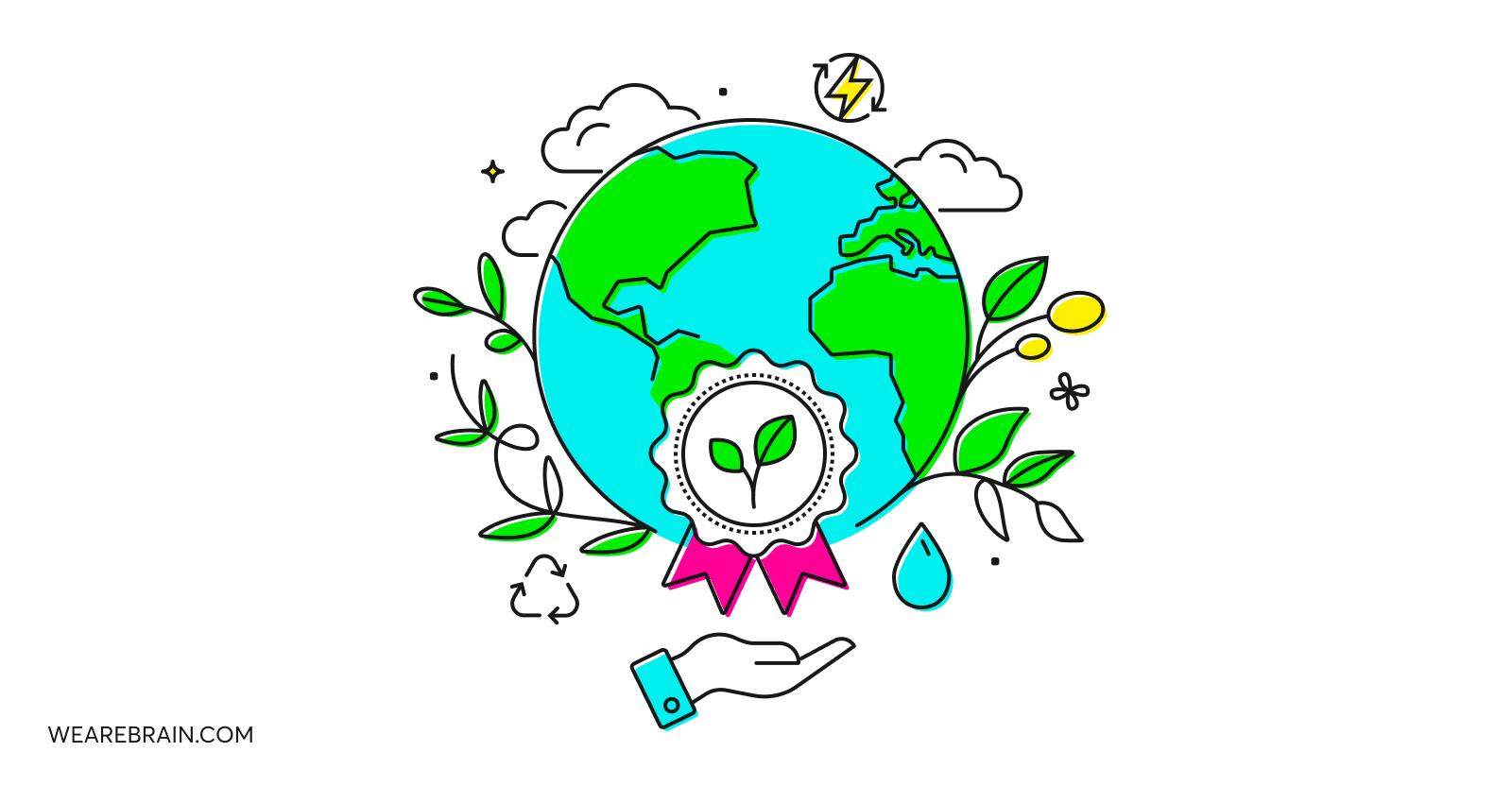Sustainable branding: authenticity builds loyalty

Exploring the intersection of brand identity and sustainability, highlighting the shift towards authentic, environmentally conscious business practices as a means to foster deeper consumer loyalty.
Key takeaways
- Consumer shift: Rising demand for sustainable products, especially among Millennials and Gen Z.
- Sustainable branding essentials: Transparency, authenticity, social responsibility, and eco-friendly partnerships.
- Green branding vs. Greenwashing: The importance of distinguishing between genuine sustainability efforts and misleading claims.
- Examples of genuine sustainability: Fairphone’s ethical electronics and Patagonia’s commitment to environmental causes showcase truly sustainable branding.
- Technological support for sustainability: Augmented reality, innovative manufacturing, and blockchain for transparency in supply chains.
- Consumer loyalty through sustainability: Authentic sustainable practices are key to securing long-term customer loyalty and brand success.
Background
In today’s world, brand identity and sustainability have become inextricably intertwined. Consumers are increasingly demanding transparency and accountability from the brands they support, and businesses are realising that sustainability is not just a moral necessity, but a sound business strategy.
This has birthed the sustainable branding movement, a new avenue for businesses wanting to promote their authenticity and values to leverage new levels of customer loyalty.
Understanding the green consumer
The green consumer movement has evolved significantly over the past few decades. Not so long ago, green consumers were often seen as niche, counterculture shoppers. But today, sustainability has become mainstream, and green consumers represent a diverse and growing segment of the population.
Studies show that 66% of global consumers are willing to pay more for sustainable products and services. And this trend is only accelerating, as younger generations are more environmentally conscious than ever before as seen in their spike in adoption of sustainability applications.
Millennials and Gen Z are the driving forces behind the green consumer movement. They are more likely to research the sustainability practices of companies before making a purchase, and they are more likely to support brands that are aligned with their values.
What makes a sustainable brand?
A truly sustainable brand is committed to environmental and social responsibility throughout its entire value chain. This begins with defining the brand’s vision and mission and includes everything from the sourcing of raw materials to the manufacturing process to even the packaging and distribution of products.
Here are some of the key elements of a sustainable brand:
Transparency and honesty
Sustainable brands are transparent about their sustainability practices and are willing to be held accountable by their customers. They publish sustainability reports and regularly disclose their environmental and social performance.
Authenticity and genuine commitment
Sustainable brands are genuinely committed to sustainability and are not just greenwashing (more on this later). Their authentic approach to sustainability efforts is integrated into their brand values and core business strategy and is not just an afterthought.
Social commitment and ethical practices
Sustainable brands are also socially responsible and ethical in their business practices. They treat their employees fairly, support the communities where they operate, and avoid unethical practices such as child labour and forced labour.
Partnerships with eco-friendly entities
Sustainable brands partner with other eco-friendly organisations, such as environmental nonprofits and sustainable suppliers. This demonstrates their commitment to sustainability and helps them to amplify their impact.
Green branding vs. greenwashing
Green branding is the practice of promoting a brand as being sustainable. Greenwashing, on the other hand, is the deceptive practice of making false or misleading claims about a brand’s sustainability.
It is important to be able to recognise the difference between genuine sustainability efforts and greenwashing.
Sustainable brands will be able to provide concrete evidence to support their sustainability claims. This may include things like sustainability certifications, third-party audits, and transparent supply chain tracking.
Greenwashing brands often use vague language to make their sustainability claims sound more impressive than they really are. For example, a brand might claim to be “eco-friendly” or “committed to sustainability,” but without providing any specific details about what those terms actually mean.
For example, if a brand is claiming to be completely carbon neutral or to have zero waste, it is probably too good to be true. Sustainable brands are transparent about their challenges and are always working to improve their sustainability performance.
Innovative sustainable branding examples
While we won’t out any brands guilty of greenwashing here, we’ve helped you to better identify greenwashing practices.
Instead, we’d like to share a few examples of innovative sustainable brands that are genuine and authentic.
Fairphone
Fairphone is a smartphone company that is committed to sustainability by trying to create a fairer electronics industry. Their phones are made with fair-sourced materials and are designed to be durable and repairable. The company also offers a take-back program to recycle old phones.
Their authenticity and transparency shine through their marketing and branding efforts – they proudly display their sustainability accreditations and awards and present studies that inform consumers about the real-world impact of the smartphone manufacturing industry.
Patagonia
Patagonia is already well-known for its environmental responsibility. The outdoor apparel brand uses recycled materials in its clothing and donates 1% of its sales to environmental causes. The company also has a number of initiatives in place to reduce its environmental impact, such as a repair program for damaged clothing and a take-back program for old gear.
The defining aspect of Patagonia’s marketing is transparency – the brand realises they are part of the problem yet is committed to playing its part to solve it.
Brands like these and others have garnered notoriety by adopting an anti-consumerism approach to their values and marketing initiatives. Patagonia’s infamous ‘Don’t buy this jacket’ campaign led the way for brands like REI to consider approaches that leverage sustainably over profit – a move that is winning over green consumers in droves.
Leveraging technology for sustainable branding
Technology is proving to be a powerful tool for sustainable branding. Here are a few examples:
Augmented reality (AR) can be used for virtual product trials, which can help to reduce returns and waste. For example, a growing number of clothing retailers are leveraging AR to allow customers to try on clothes virtually before they buy them.
General technological innovations can also be used to create more sustainable products and services. For example, the fashion industry is increasingly using recycled materials and developing new manufacturing processes that produce less waste.
Blockchain technology can also be used to create transparent supply chains. This allows consumers to track the journey of their products from farm to table/source to wear to ensure that they are ethically sourced.
Sustainable brands sustain customers
Sustainability is indeed the future of branding. Brands that are able to demonstrate a genuine commitment to sustainability will be the ones that succeed in the long term.
Consumers are increasingly demanding transparency and accountability from the brands they support, and those who take this movement lightly do so at the risk of the most valuable asset a business can acquire – the loyalty of their customers.
Paula Ferrai
Working Machines
An executive’s guide to AI and Intelligent Automation. Working Machines takes a look at how the renewed vigour for the development of Artificial Intelligence and Intelligent Automation technology has begun to change how businesses operate.







